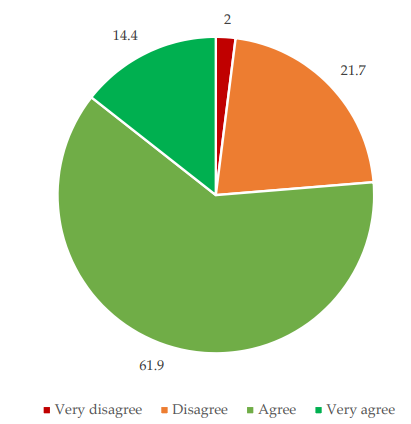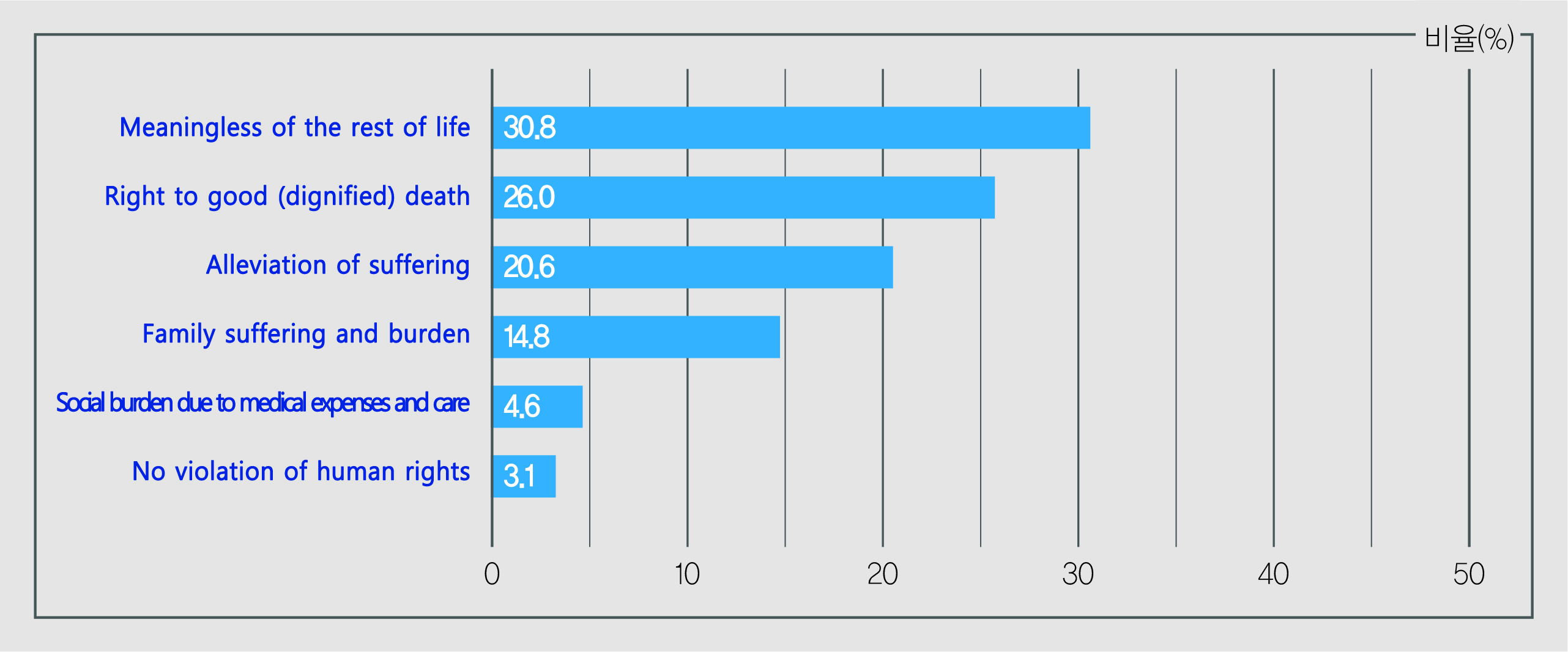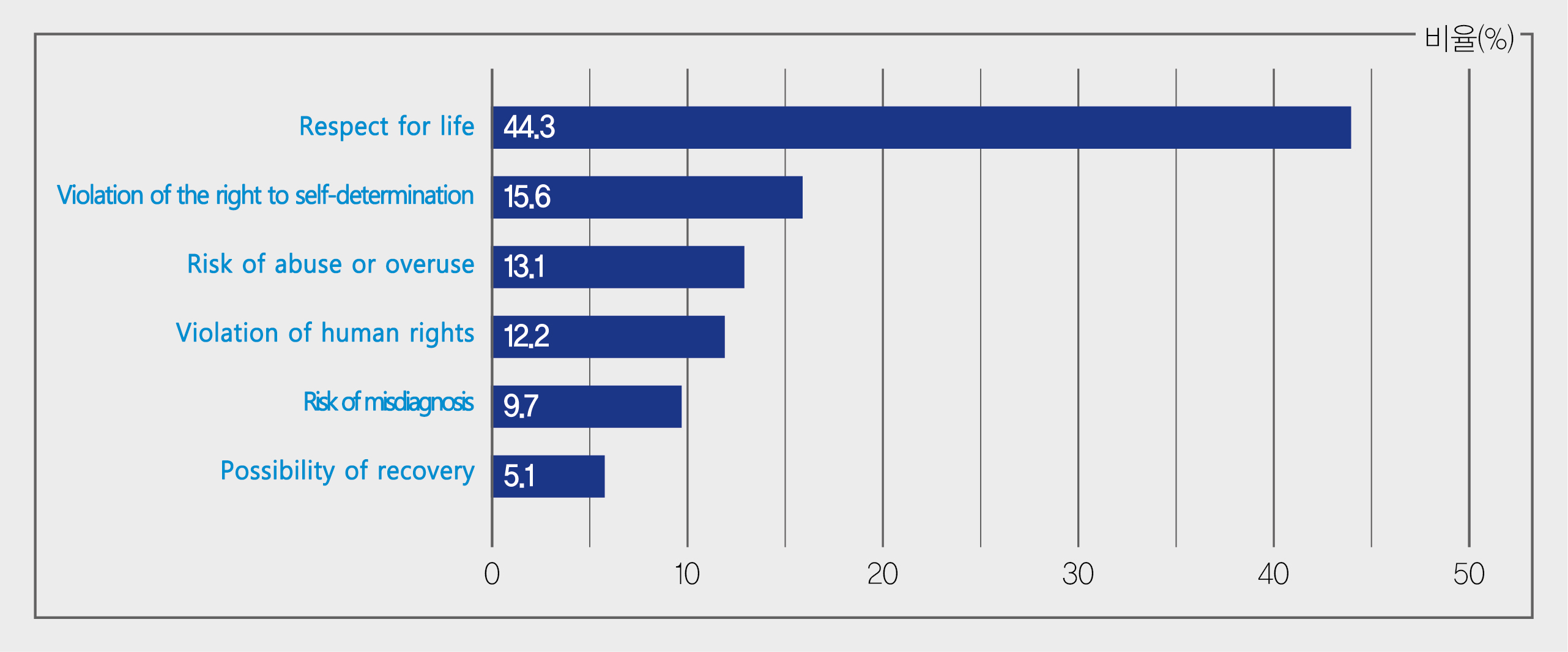76% of the people support legislation for euthanasia or physician-assisted suicide
- Approx. 1.5 times higher than the approval rate for euthanasia in 2008 and 2016
- Before discussing euthanasia, ensuring ‘well-dying in a broader sense’ should be institutionally preceded…

[Figure 1] Participants’ attitudes toward the legalization of euthanasia and physician-assisted suicide (%)
In May 2018, Australian ecologist Dr David Goodall died in an assisted-physician-suicide at a hospital in Bern, Switzerland. He opened the valve on his own to allow an injection containing a tranquilizer prepared by medical staff to be injected intravenously. And last March, news broke that Alain Delon, who was called the “handsome man of the century,” had decided to euthanize.
Recently, in Korea, 76.3% of the people supported the legalisation of euthanasia or physician-assisted suicide. In a situation where the number of deaths in Korea is expected to gradually increase in the future, namely 350,000 in 2025, 500,000 in 2040, and 700,000 in 2050, support for euthanasia legislation is also expected to grow stronger.
On the 24th, a team led by Professor Yun Young Ho of the Department of Family Medicine at SNUH revealed the results of a survey on attitudes toward euthanasia or physician-assisted suicide among 1,000 Koreans aged 19 and over from March to April 2021.
As a result of the survey, the approval rate was found to be relatively high at 76.3%. Reasons in favour were △ meaninglessness of the rest of life (30.8%) △ right to a good (dignified) death (26.0%) △ alleviation of pain (20.6%) △ family suffering and burden (14.8%) △ social burden due to medical expenses and care (4.6%) and △no violation on human rights (3.1%).

[Figure 2] Respondents’ reasons for agreeing with the legalization of EAS

[Figure 3] Respondents’ reasons for disagreeing with the legalization of EAS
In 2008 and 2016, Professor Yun's team also investigated the public's attitude toward euthanasia or physician-assisted suicide. At that time, about 50% of the people were in favour of euthanasia and physician-assisted suicide, but in this study, the approval rate was 1.5 times higher.
Meanwhile, before discussing the introduction of euthanasia, it is necessary to first look at the situation in which patients want euthanasia. Situations where euthanasia is desired are largely divided into △physical pain △mental depression △social and economic burden △the meaninglessness of the remaining life.
This classification means that, before discussing the legislative action of euthanasia, it is necessary to take medical measures to reduce the physical and mental pain of patients or to support medical expenses, and to make efforts to make the rest of their lives meaningful.
In addition, about 85.9% of the respondents agreed with the opinion that legislation on the system and professionalism is necessary for 'well-dying in the broad sense'.
Well-dying in a broad sense goes beyond well-dying in a narrow sense(determining hospice and life-sustaining treatment), and describes efforts to expand hospice and life-sustaining care decisions for dignified death, as well as means to provide services of co-supporting the elderly living alone, adult guardianship, organ donation, inheritance donation, writing life notes, etc.
About 85.3% of respondents also agreed when asked whether such broad well-dying could be an alternative to euthanasia or physician-assisted suicide.
Professor Yun Young Ho of the Department of Family Medicine said, "Currently, the hospice and social welfare systems in Korea are not well established, and even the broad sense of well-dying is not well established." He added "If well-dying in a broad sense, which aims to make the rest of life for patients meaningful, is not systematically preceded, there is a possibility that the demand for euthanasia or doctor-assisted suicide will unnaturally and rapidly increase."
He continued, “In order for euthanasia to be discussed in the sense of true respect for life, the prerequisite is ‘relief of physical, mental, social, economic, and existential pain’ of patients.” He also added, "For this reason, funds and foundations should be prepared for the creation and institutionalization of a well-dying culture.”
